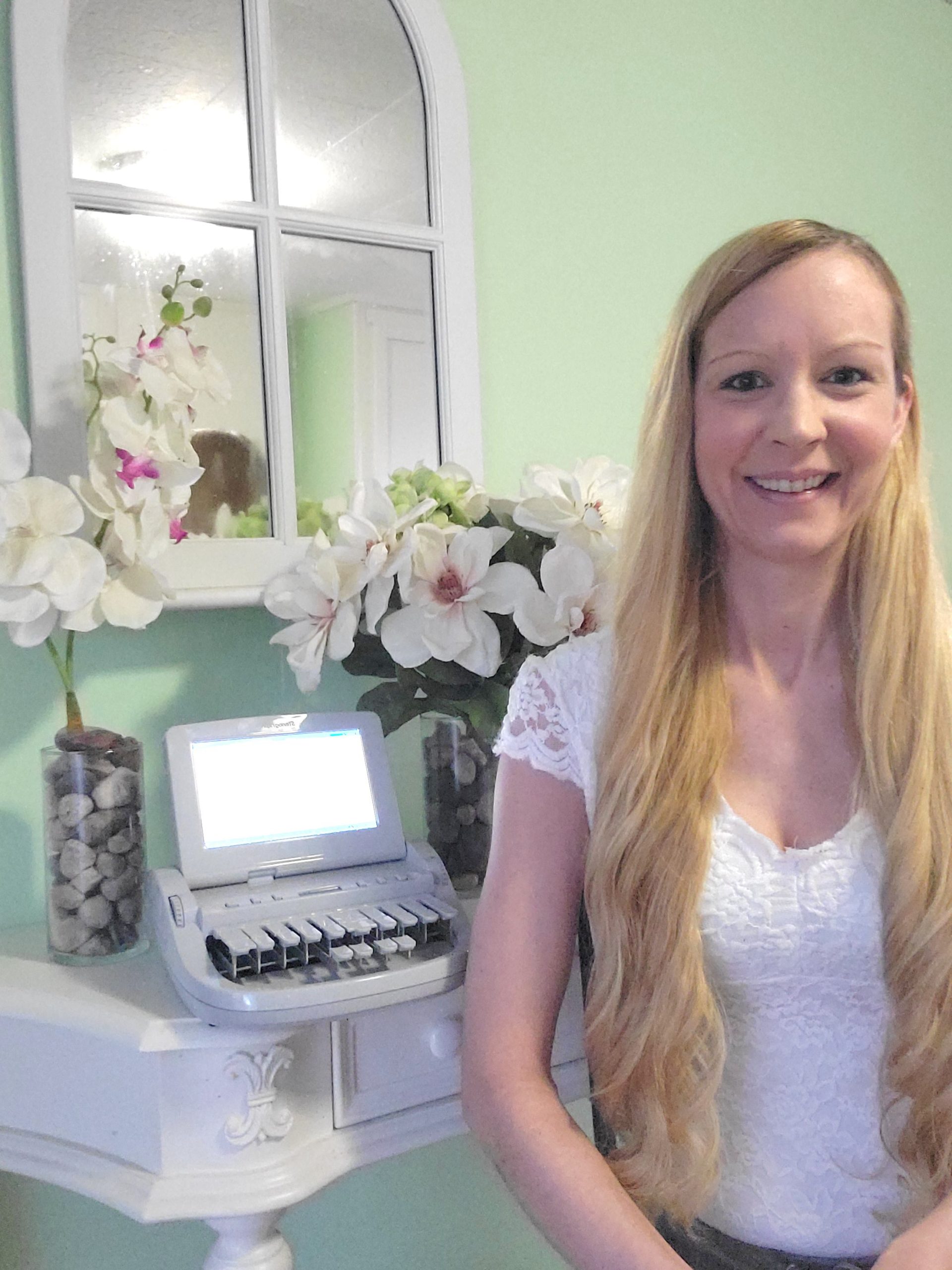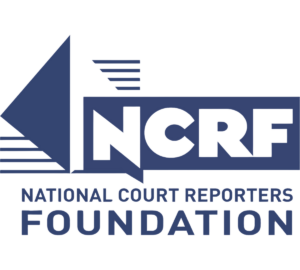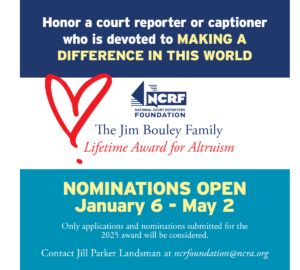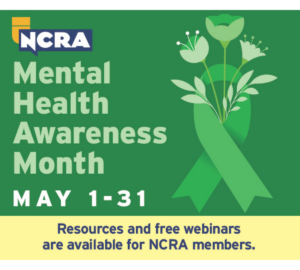When Katie DeLong, of Butler, Wis., first graduated with a bachelor’s degree in journalism, she had dreams of becoming a news anchor or on-air reporter. Instead she found a job in digital journalism and spent over a decade as a producer for television news. But one day DeLong was sent on assignment to a courthouse for a media event about how journalists and jurists can work together. “The courtroom,” says DeLong, “just felt like ‘home’ to me.” After some research, she enrolled at Lakeshore Technical College in Cleveland, Wis., and earlier this month joined NCRA as a student member.
UTS | Can you talk a little about your background? Did you have another career before you started at Lakeshore?
KD | am currently a journalist, part of an award-winning digital news team at FOX6 News in Milwaukee, where I have served as the senior digital producer for 12 years. My basic responsibility is writing news for the station’s website and social media platforms. I am definitely a “news junkie,” and I have dreamed of being a journalist since I was seven years old. It is a very stressful, demanding job that never ends, as online news is 24/7/365. Working in the biggest city in the state, there is always a lot going on, and our coverage area extends well beyond Milwaukee. It’s the kind of career that you truly have to be dedicated to, and it’s one of the only things I consider myself to be naturally “good at.”
Before I started my career in news, I graduated with my bachelor’s degree from the University of Wisconsin-Whitewater, where I majored in journalism and minored in public relations. I spent most of my collegiate years at the student-run television station, where I produced, anchored, and reported in my own newscast that ended up winning third place in the state.
I initially wanted to work “on air” as a news anchor and/or reporter, but my first job out of college was digital journalism, and I found that I really liked it because it was a perfect blend of print and broadcast journalism. Turns out, you can do both! Essentially, I was working for a TV station and turning television news scripts into print/online news stories. I have stuck with it ever since.
UTS | How did you first get the idea of being a court reporter?
KD | The court reporting seed was planted when I had the opportunity to go to my local courthouse for a presentation put together by a judge there for members of the news media. It was basically a question-and-answer type of discussion where the media could learn more about how the court process works and how journalists and jurists can work together when it comes to the cases being covered and tried. Being that the courtroom just felt like “home” to me, and the presentation was so interesting, I could have stayed there all day. It made me feel like perhaps I could be happy in a profession other than journalism.
At the same time, I was dabbling in some QWERTY keyboard captioning online, and I wanted to expand that endeavor, so I began looking into some other captioning opportunities and realized that most of them required certification. That’s when I found out about court reporting school.
UTS | What inspired you to join NCRA this year? What do you hope to get out of your NCRA membership?
KD | It was time to commit! I have been an active member of my state association since I started school, but I figured now was a good time for me to become an NCRA member since I am close to entering my 200s. I know I should have joined a long time ago! Additionally, after attending several state conventions over the last few years, I am planning on attending my first NCRA Conference & Expo this July in Houston, so I wanted to make sure I don’t miss any updates on that and other important NCRA and court reporting news.
UTS | What are your plans for when you finish school? What is your dream job?
KD | When it comes to court reporting, I want to do it all! I am interested in being an official, a freelancer, or providing CART or captioning, — you name it. If I could do it all, I’d say, “Sign me up!” I suppose it is a good problem to have because I could see myself being happy in any court reporting-related job, but at the same time, at some point, I am once again going to have to make a hard decision. I’m just happy I don’t have to make it yet.
One of the many benefits of the court reporting profession is the myriad of jobs in which a court reporter’s skills can be applied. If something doesn’t work out for me, or I need a change at some point, I can easily make that transition.
UTS | Is there anything else you would like to share?
KD | I would just like to say that I am thankful for the extremely supportive court reporting community, especially as a student going through this very difficult training.
Every court reporter I have met through my state organization or otherwise has gone out of their way to do whatever they can to not only welcome me into the profession but to try to help in any way possible, even if it’s just a word of encouragement.
This kind of support is not something that’s necessarily common in other fields, and the competitive nature of some jobs can make it difficult to want to help others succeed.
I am grateful for everyone whom I have had the opportunity to meet and even for those I have not met who, for example, post a tip or share a struggle on one of the court reporting-related social media pages or podcasts. Every little thing I read or am exposed to helps me move up the ladder toward success step by step.
Missed previous issues of Up-to-Speed? Access them here.













